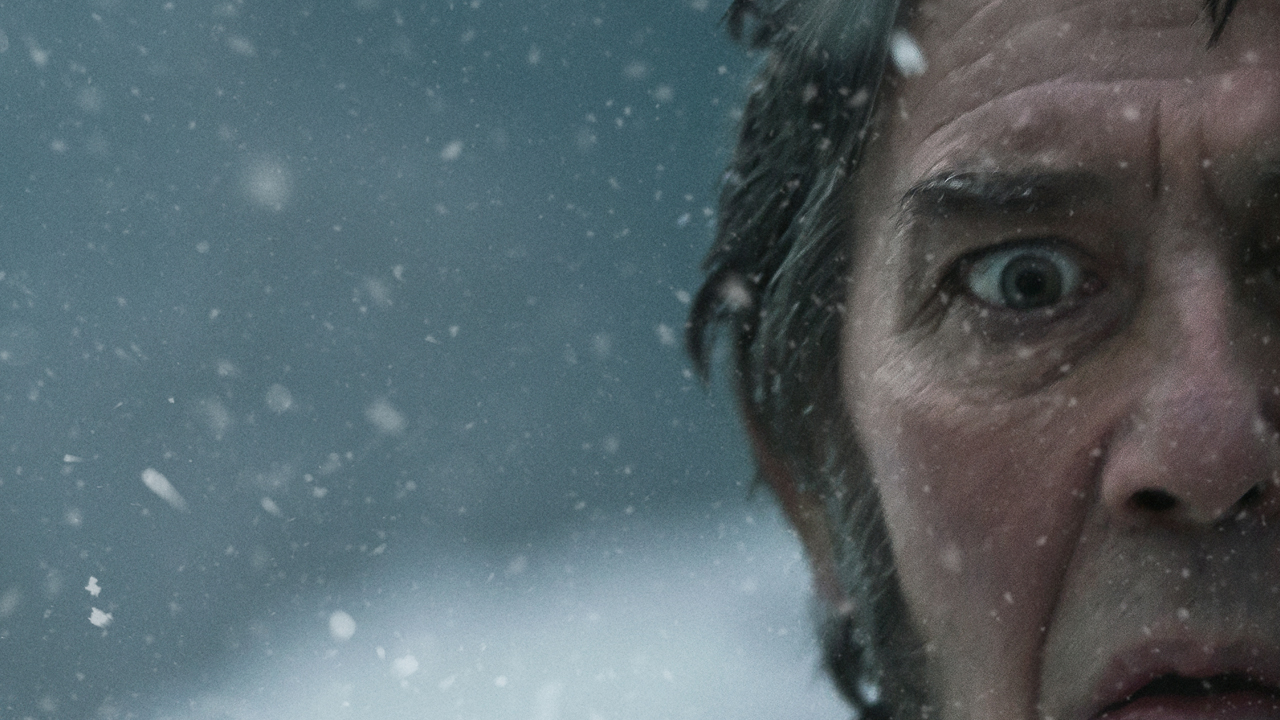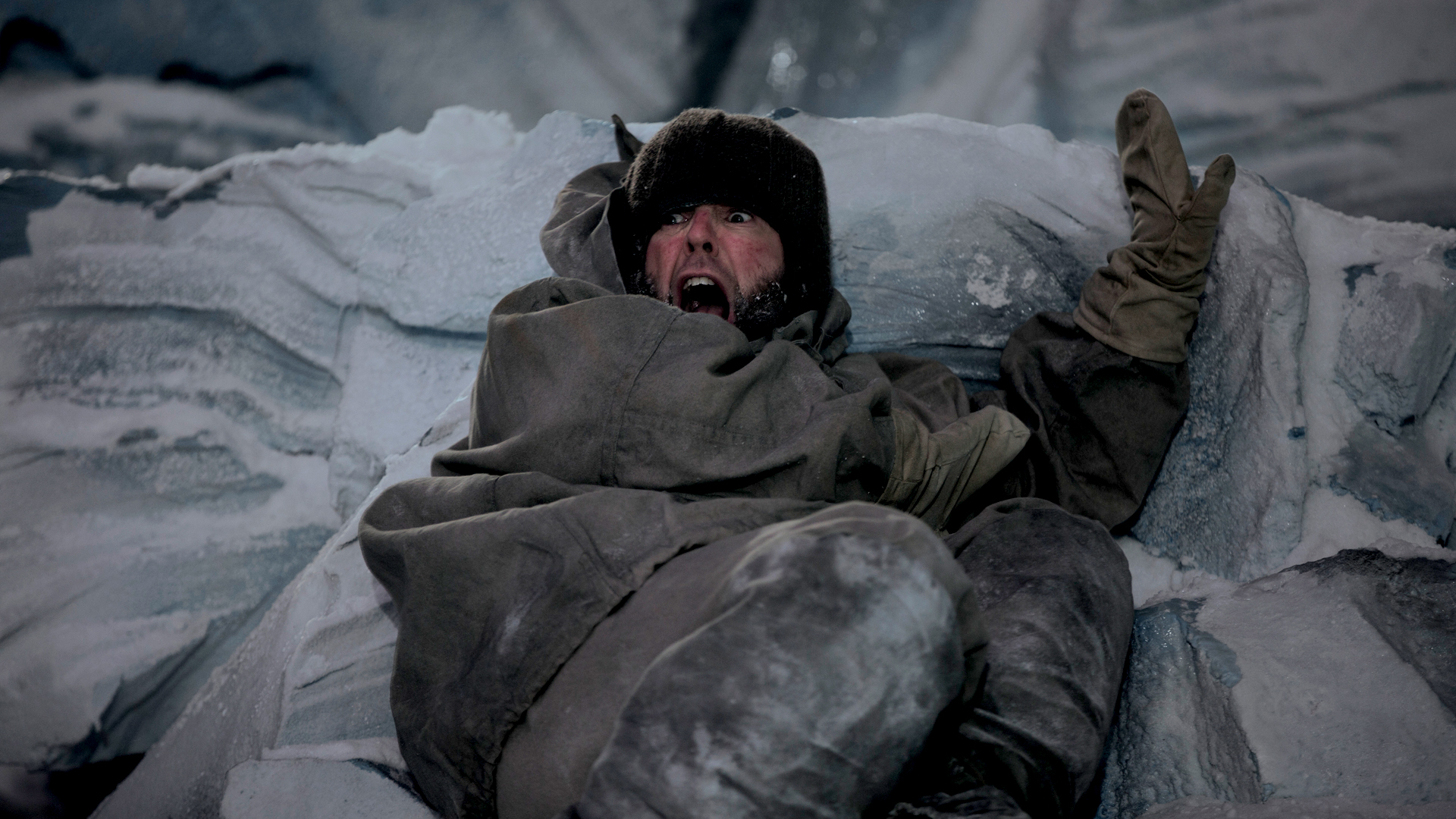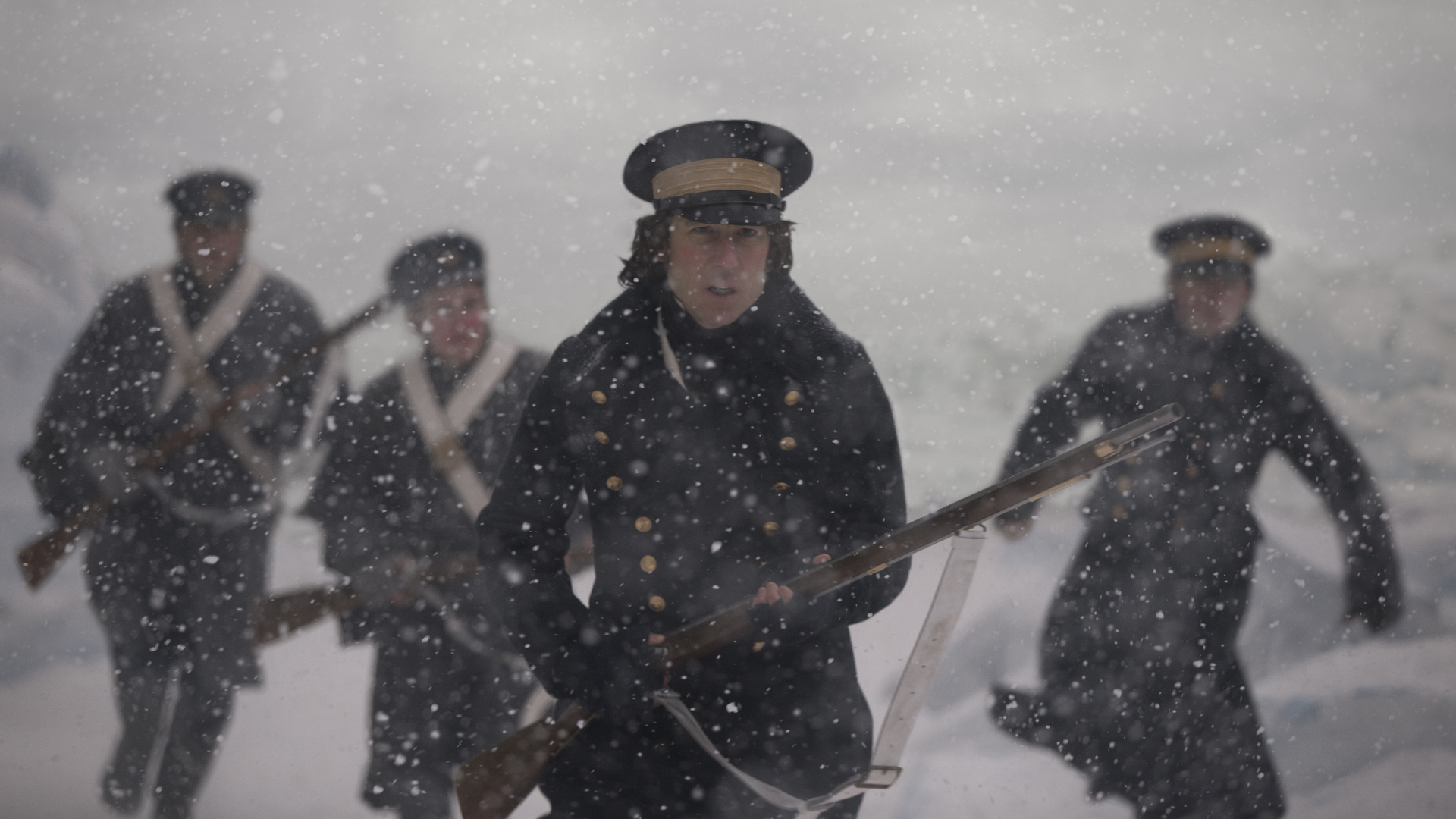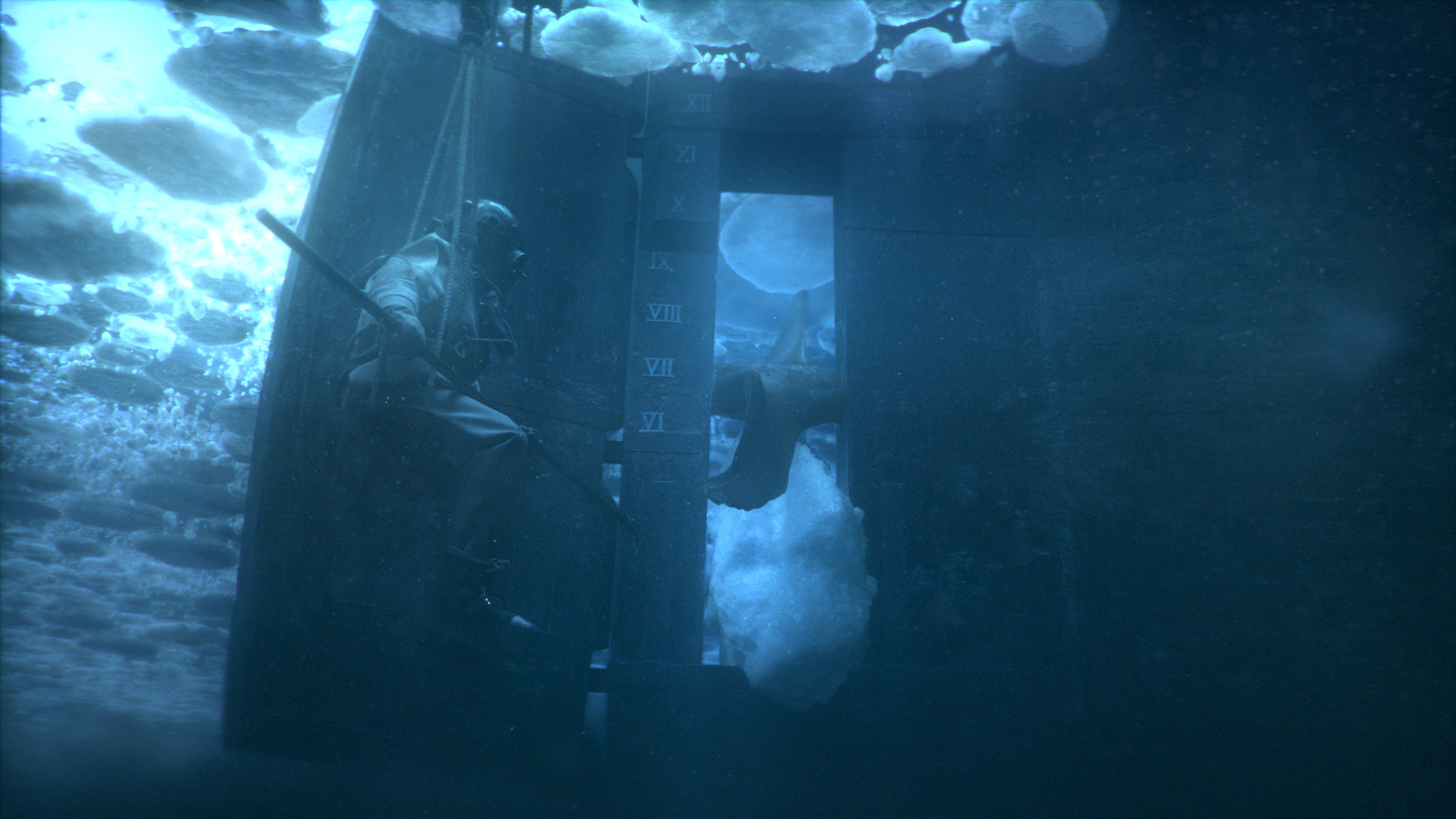How a 170-year-old mystery feels like one of the most modern shows of 2018
The Terror’s own Tobias Menzies talks to us about how AMC’s latest is striking relevant in 2018, and damn good horror to boot

Have you started watching The Terror yet? AMC’s latest slice of horror TV is a slow-burn thriller - the story of two ships attempting to map a route through the Arctic circle in 1845, and not only getting stranded on the ice, but also encountering something far more lethal and ancient lurking in the frozen wilderness. It’s Alien-esque horror, executive produced by Ridley Scott himself, and starring some of the finest actors working in TV to bring its characters to life (if only to be picked off). It’s also based on a book, which fictionalises a real-life expedition from the Victorian era, and although the source material is 170-years-old, The Terror feels like one of the most modern, prescient pieces of TV you’ll see in 2018.
I caught up with Tobias Menzies, who plays Captain James Fitzjames in the show, to talk about what makes it such an effective horror. You’ll recognise Menzies from his other shows like Game of Thrones, Outlander, and Rome, in which he often plays morally questionable characters. In some cases, absolute devils. Yet in The Terror, despite being a stubborn and underhand brute, he’s by no means the villain of the piece. “Fitzjames, he’s actually one of the more agreeable people I’ve had to play - he’s not one of the more overt monsters of the show, which was a nice change of pace for me,” jokes Menzies. The real villain here, as is so often the case in modern life, is ‘the other’ - or rather a reaction to it.
The Terror sees the arrogance of Imperialism harshly punished by both the raw reality of nature, and the unreality of the unknown. “What’s interesting about the show is that you have this group of Victorian men coming to a place - and they’re coming with a sense of superiority, which you could call hubris - and they encounter, on various different levels, both in terms of culture and more specifically this creature that they can’t understand,” says Menzies. “The two are threaded together in the show, and they’re emblematic of an inability to understand something non-logical. It’s non-Newtonian, it’s mythical, it’s esoteric - and I feel like that’s the real terror of the piece.” While the creature in The Terror is obviously a fictional beast - a physical horror - it also represents something more metaphorical, which is very relevant in 2018. It represents the other; the thing we fear because we don't or won't understand it. We live in an era where the echo-chamber of social media, and the extremes of politics often firmly reinforce or seem to violently oppose the things we believe. It teaches us to fear what we don’t understand and revere what we think we do. We’ve developed our own sense of Victorian hubris, and often boldy push ourselves into situations and arguments where we firmly assume superiority, turning our opposition into figurative monsters. It’s often a stubbornness, ignorance, or lack of willing to back down or see an alternative point of view that causes conflict. Sometimes, we trap ourselves in the pack-ice with the bloodthirsty demon.
Characters like Fitzjames and John Franklin (Ciaran Hines) very much embody the danger of blindly following your beliefs and failing to acknowledge ‘the other’. “We see characters who arrive with certain assumptions about how it’s going to be and believing themselves to be in control,” explains Menzies. “I think Fitzjames is in that category - he’s a Captain, he’s had a certain amount of success, he’s a star, he has been decorated… and all of that doesn’t mean anything in this place. So, you see that person having to negotiate that descent; that fall from grace.”

Instead of attempting to understand their situation, the characters of The Terror retreat into themselves rather than dealing with it. While the most obvious example is Franklin, whose decision to journey through the winter eventually ends up stranding the crews, it’s a theme for all the cast, who isolate themselves in their own unique ways. Captain Crozier (Jared Harris), for example, retreats into his pessimism when faced with adversity, and although we - the audience - sympathise with him and probably share his gloomy point of view, we can also see how his rigidity doesn’t much help the plight of the crews either. Dead men all shout ‘I told you so’ at the same volume.
Menzies captures this sentiment well: “It feels enjoyably relevant - that idea of ‘the other’ and clashes of cultures; misunderstandings; an inability to adapt to another place and another way of thinking about things. We certainly seem to be going through a period where tolerance and understanding is in short supply - people are kind of pulling back and retrenching.” In an age of extreme choice, and an almost infinite number of perspectives on life, it’s all too easy to withdraw into what we know, what we’ve experienced previously, and what we’re told by others we trust. There’s no judgement here, but many cite this as the reason the US has the President it does, the UK is facing self-imposed exile from Europe, and the idea of media control is under such scrutiny. Faced with ‘the other’ and a wealth of opinions and views different to our own, many have stuck to what they know and what they’re told - even kicked back against what the perceive as 'foreign' or invasive.

The Terror never makes this explicit, and there’s no overt political comment whatsoever, but the Victorian morals and values it presents make it feel oddly relevant in today’s society. The regular crew believes the hype of the senior officers, who are celebrities in their own age, even though they’re all deeply flawed in ways obvious to us. Franklin borders on the religious fanatic, Fitzjames is an arrogant authority figure who believes his own legend, but we can see that they’re clearly products of their own environment in the same way many of today’s divisive figures are. “I have sometimes had to try and humanise quite extreme human behaviours,” says Menzies. “I suppose in that regard it does chime with a core belief of mine that we’re products of nurture less than nature, and I feel like there is usually deep down - no matter how despicable the behaviour - a kind of twisted logics to these things.” We see where these characters have come from, imperfect as they are, even if we disagree with them. Tragically, the crew who grew up in that society has no such luxury. It’s a clear mirror for the way we view most of our celebrities and leaders in the modern world, with many never questioning the figures we’ve built our modern culture around. One only has to look at the potency of YouTube fandom to realise how ‘stars’ can be followed so fanatically, sometimes at the expense of what others deem common sense. So it is with the crew and people like Franklin.
Bringing all the latest movie news, features, and reviews to your inbox
But it’s not all negative, as The Terror - among all the horror and bleakness - does offer hope and opportunity. “You see other characters who arrive with nothing but, by the end and through the journey, actually win and become bigger. That variety of responses to the situation are what makes this show so interesting to watch.” In the world of The Terror, where the micro-society we follow is built on a rigid set of rules, beliefs, and insular thinking, it’s actually those who adapt and embrace the change, the other, different perspectives who thrive and survive. That’s embodied by characters like Henry Goodsir (Paul Ready), who elevates himself by attempting to understand the fears of the crew, instead of dismissing them, and who wants to help Lady Silence (the Inuit 'other' the crew encounters) instead of pushing away what he doesn’t understand. We could, as a society, learn plenty from Goodsir who very much earns his name.

Of course, The Terror does feature a supernatural element, and it plays out under the most extreme and cruelest of conditions. I’m not claiming it’s a realistic show by any means, even if it’s historically authentic and features plenty of very believable characters. It’s pure fiction. And yet this 170-year-old mystery (no-one really knows the full details about what happened to Franklin’s real-life expedition), with a cast of stuffy Victorian men and a monster that can shred limbs with the swipe of a claw, somehow feels very modern and utterly relevant in 2018.
The Terror airs on Monday evening at 9pm c/t on AMC. It begins airing in the UK on April 24, via BT TV.



